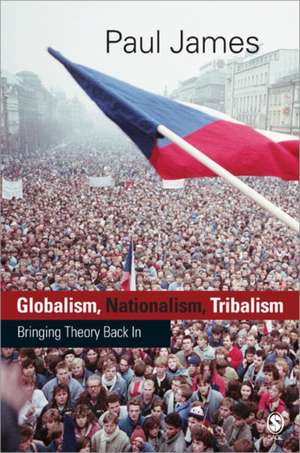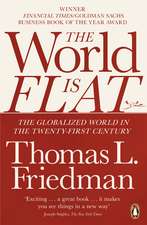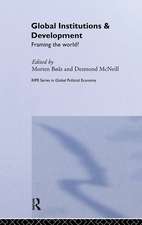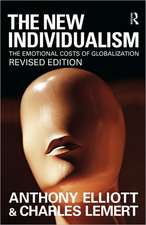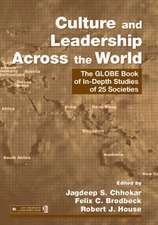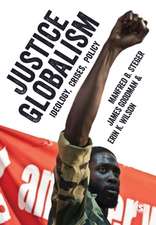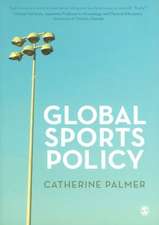Globalism, Nationalism, Tribalism: Bringing Theory Back in
Autor Paul W Jamesen Limba Engleză Paperback – 19 apr 2006
Globalism, Nationalism, Tribalism establishes a new basis for understanding the changing nature of polity and community and offers unprecedented attention to these dominant trends. Paul James charts the contradictions and tensions we all encounter in an era of increasing globalization, from genocide and terrorism to television and finance capital.
Globalism is treated as an uneven and layered process of spatial expansion, not simply one of disorder, fragmentation or rupture. Nor is it simply a force of homogenization.
Nationalism is taken seriously as a continuing and important formation of contemporary identity and politics. James rewrites the modernism theories of the nation-state without devolving into the postmodernist assertion that all is invention or surface gloss.
Tribalism is given the attention it has long warranted and is analyzed as a continuing and changing formation of social life, from the villages of Rwanda to the cities of the West.
Theoretically adept and powerfully argued, this is the first comprehensive analysis that brings these crucial themes of contemporary life together.
Preț: 443.59 lei
Preț vechi: 521.87 lei
-15% Nou
84.88€ • 88.85$ • 70.65£
Carte tipărită la comandă
Livrare economică 31 martie-14 aprilie
Specificații
ISBN-10: 0761955143
Pagini: 392
Dimensiuni: 156 x 234 x 22 mm
Greutate: 0.59 kg
Ediția:1
Editura: SAGE Publications
Colecția Sage Publications Ltd
Locul publicării:London, United Kingdom
Recenzii
Cuprins
Social Relations in Tension
Contending Approaches in Outline
Theory in the Shadow of Terror
PART TWO: RETHINKING FORMATIONS OF PRACTICE AND BEING
Constituting Customary Community
Communication and Exchange, Money and Writing
Time and Space, Calendars and Maps
Bodies and Symbols, Blood and Milk
PART THREE: REWRITING THE HISTORY OF THE PRESENT
State Formation
From Kingdoms and Empires to Nation-States
Nation Formation
From the Medieval to the Postmodern
Global Formation
From the Oecumene to Planet Exploitation
Conclusion
Principles for a Postnational World
Notă biografică
With
John Tulloch is Professor of Sociology at Brunel University, UK. His research and publications have ranged from film and television studies and theatre through literary theory to history and sociology. His work in film and television theory has shifted from historical analysis to more current production/audience analyses of popular television, such as Australian soap opera and British TV science fiction. Notable influences on his work have been Raymond Williams and Stuart Hall and more recently Ulrick Beck.
Peter Mandaville is an Associate Professor in the Department of Public and International Affairs and Co-Director of Mason¿s Center for Global Studies. He has authored numerous book chapters and journal articles, contributed to publications such as the International Herald Tribune and The New Republic, and consulted extensively for media, government and non-profit agencies. Much of his recent work has focused on the comparative study of religious authority and social movements in the Muslim world. His current research includes projects on Muslim leadership in the West and the relationship between globalization and development.
Imre Szemán is Senator William McMaster Chair of Globalization and Cultural Studies at McMaster University. He is the founder of the Canadian Association of Cultural Studies and a founding member of the Cultural Studies Association (U.S.). His main areas of research are globalization, visual cultural studies, contemporary popular culture and social and cultural theory. He has published more than fifty articles and book chapters on a range of topics.
Manfred B. Steger is Professor of Global Studies and Academic Director of the Globalism Institute at RMIT University. He is also Program Leader of ¿Globalization and Culture¿, in the Global Cities Institute at RMIT University. He has delivered many lectures on globalization, ideology, and nonviolence in the Americas, Asia, Europe, the Middle East, Africa, and Australia. He serves on several editorial boards of academic journals as well as on the advisory boards of several globalization research centers around the world.
